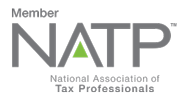With the “gig economy†on the rise, more and more taxpayers are becoming
self-employed. It was reported that 30% of the nations workforce,
including their workers, is self-employed. With being self-employed you
are typically treated like other business owners when it comes to taxes.
Self-employed taxpayers need to be aware of these tax areas.
Just like all other businesses, self-employed taxpayers will pay federal
income tax as well as state income tax. But self-employed businesses do
not have to pay the full amount on their “profitâ€. Maximizing the
available deductions can help reduce both federal and state income tax.
Self-employment tax is equal to the Social Security and Medicare tax
that is paid by both the employee and the employer. Self-employed
businesses effectively pay twice as much as an employee does since they
are both the employee AND the employer. Self-employment tax rate is
15.3% on the first $132,900 and 2.9% on the income about that threshold.
One the positive side a self-employed individual can deduct half of the
self-employment tax on their annual tax return.
If they employ other workers, which most do. Self-employed business
owners must pay half of their employees Social Security and Medicare
taxes, plus unemployment tax, and possibly temporary disability tax.
They are also responsible for withholding the payroll taxes and
depositing those amounts to the IRS.
Sep 27



